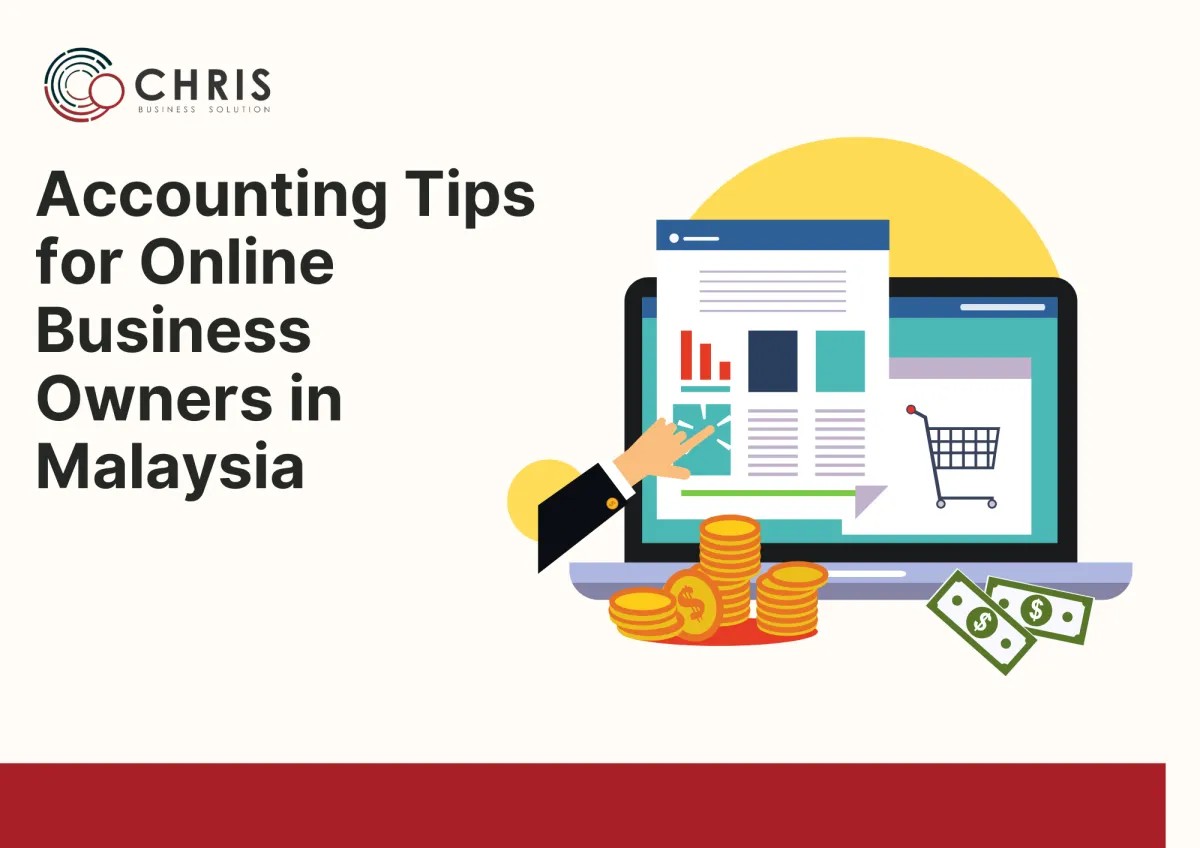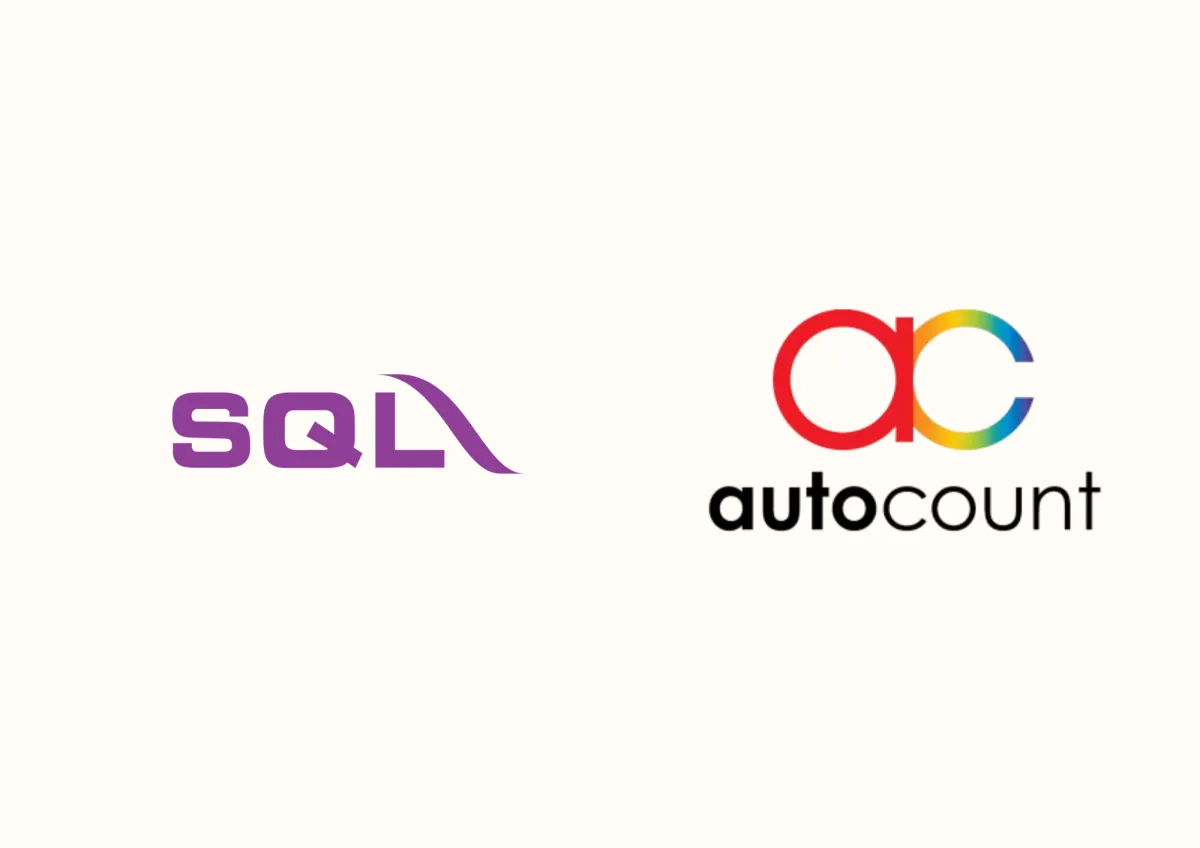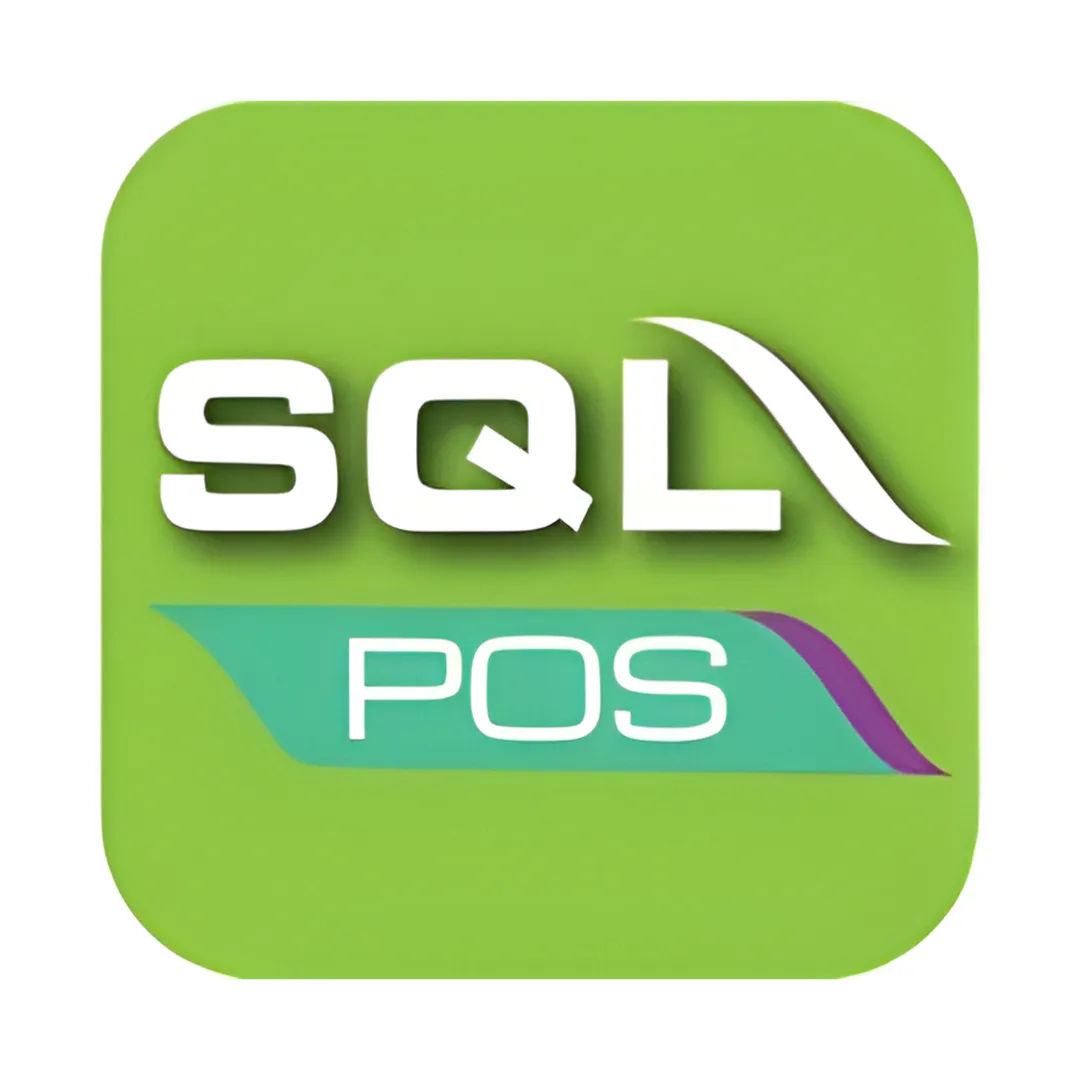
Accounting Tips for Online Business Owners in Malaysia
This guide is designed to help Malaysian online business owners especially small and medium-sized enterprises (SMEs), freelancers, and solopreneurs, gain clarity on accounting fundamentals, comply with legal obligations, and build a financially healthy business.


Published 26 August 2025
In this article, you will learn about
1. System Requirements & Preparation
2. Installing SQL Accounting Software
3. Creating a New Company Profile
4. Setting Up Core Accounting Structure
5. Configuring Inventory (Optional)
6. Inputting Opening Balances
7. Daily Operations Overview
8. Maintenance Tips & Best Practices
In this article, you will learn about
1. Why Accounting Is Non-Negotiable in Online Business
2. Start With a Clean Separation Between Personal and Business Finances
3. Know Your Tax Responsibilities in Malaysia
4. Track Every Ringgit Earned Across All Platforms
5. Keep Detailed Records of All Business Expenses
6. Manage Your Cash Flow Like a Pro
7. Choose an Accounting System That Matches Your Business
8. Schedule Monthly Reviews of Your Financial Health
9. Know When to Hire a Professional Accountant
10. Build a Scalable Financial System for Future Growth
E-commerce in Malaysia is booming. With more Malaysians shopping online than ever, and platforms like Shopee, Lazada, TikTok Shop, and Shopify making it easier to launch an online store, digital entrepreneurship has become more accessible. Whether you're selling skincare from your bedroom or running a full-scale drop shipping operation, you're part of a rapidly evolving business landscape.
But here’s the truth: while product sourcing, customer service, and social media marketing often take center stage, accounting is what keeps your business alive in the long run. Without accurate financial records, even profitable businesses can face cash flow crises, tax penalties, or failed expansion attempts.
This guide is designed to help Malaysian online business owners, especially small and medium-sized enterprises (SMEs), freelancers, and solopreneurs, gain clarity on accounting fundamentals, comply with legal obligations, and build a financially healthy business.
Book a consult and we’ll match you with the right system
Why Accounting Is Non-Negotiable in Online Business
Accounting is not just about keeping the government happy during tax season. It’s about understanding your business from the inside out. Proper accounting gives you insights into whether your business is profitable, where you’re losing money, and how much you can afford to reinvest or withdraw as income.
In Malaysia, e-commerce sellers are subject to the same tax and compliance standards as brick-and-mortar businesses. The misconception that “online business is informal” can lead to costly mistakes.
Moreover, a sound accounting system is essential if you ever want to:
• Apply for government grants
• Secure loans from banks or investors
• Scale your business into a formal company (e.g. Sdn. Bhd.)
• Sell your business or bring in a partner
Neglecting accounting doesn’t save you time; it delays your growth.
Start With a Clean Separation Between Personal and Business Finances
A surprisingly high number of online business owners in Malaysia use their personal bank accounts to collect payments, pay suppliers, and handle business expenses. This creates confusion, especially when it’s time to track profits or prepare financial reports.
Establishing a clear divide between your personal and business finances is crucial. Even if you’re operating as a sole proprietor or freelancer, consider registering your business with the Suruhanjaya Syarikat Malaysia (SSM) and opening a business bank account.
When your business finances are cleanly separated, bookkeeping becomes easier, tax reporting is clearer, and you avoid mistakes like misclassifying personal purchases as business expenses.
Know Your Tax Responsibilities in Malaysia
In Malaysia, running an online business does not exempt you from tax responsibilities. The Lembaga Hasil Dalam Negeri (LHDN) treats income from online selling the same way it treats income from traditional businesses.
If you’re a sole proprietor or freelancer, you are required to file taxes using Form B. If you’ve registered a company (Sdn. Bhd.), you will need to submit Form C annually and follow corporate tax guidelines. Regardless of your structure, you must declare all income, even if you’re only selling part-time.
For service-based businesses or businesses that exceed RM500,000 in annual taxable revenue, you may be required to register for Sales and Service Tax (SST). Many small e-commerce businesses fall below this threshold, but if you're importing goods or scaling quickly, it’s worth consulting with a tax advisor to avoid surprises.
Penalties for failing to declare income, late payment, or inaccurate filing can be severe. LHDN has increased its scrutiny of online sellers in recent years, particularly those active on Shopee, Lazada, and TikTok Shop.
Request a sample dashboard or a live demo
So you can evaluate based on real data, not just features.
Track Every Ringgit Earned Across All Platforms
If you’re selling across multiple channels say, Shopee, Lazada, and your own website tracking your income becomes more complex. Many entrepreneurs only check the payouts they receive from marketplaces, forgetting about platform fees, withheld funds, or pending returns.
To accurately track revenue, you should maintain a detailed monthly sales report that includes:
• Gross sales from each platform
• Refunds and returns
• Discounts and promotions offered
• Platform fees (e.g., Shopee commission, Lazada shipping rebates)
• Net payout received
Don’t rely solely on the dashboards of your e-commerce platforms. Consolidating your income data manually (using spreadsheets) or automatically (using accounting software) gives you a true picture of your revenue and helps with tax preparation later.
Keep Detailed Records of All Business Expenses
Every expense related to your business — no matter how small — should be recorded and, where possible, supported by a receipt or invoice.
In the context of Malaysian online businesses, expenses may include:
• Cost of goods sold (COGS)
• Shipping and delivery fees (including courier services like J&T, Ninja Van)
• Payment gateway fees (e.g., PayPal, Stripe, iPay88)
• Advertising and marketing spend (Facebook Ads, TikTok Ads, SEO services)
• Subscriptions to digital tools (Canva Pro, Shopify, accounting software)
• Internet and phone bills used for business
• Freelancer payments or part-time staff wages
Recording expenses is not just for accuracy — many of these are tax-deductible, reducing your taxable income.
Make it a habit to store both hard and soft copies of receipts. LHDN requires business owners to keep records for at least seven years in case of an audit.
Manage Your Cash Flow Like a Pro
Cash flow is one of the most critical financial indicators in any business, and one of the most misunderstood. Many online sellers look only at monthly sales, forgetting about actual money in the bank. You could have RM20,000 in sales and still struggle to pay your supplier if platform payouts are delayed or expenses are high.
Managing cash flow requires you to understand:
• When money enters (customer payments, platform payouts)
• When money leaves (ad charges, supplier payments, loan repayments)
• What fixed and variable costs you incur monthly
Prepare a monthly cash flow statement, even if it’s basic. This should include all cash inflows and outflows, so you can anticipate shortages, avoid bounced payments, and plan for stock replenishment or marketing campaigns.
Consider maintaining at least 2–3 months of operational expenses in reserve to buffer against slow seasons or unexpected costs.

Choose an Accounting System That Matches Your Business
Spreadsheets are great when you're just starting. But as your transaction volume increases, so does the chance for errors, duplication, or lost data. At some point, you’ll want to adopt accounting software to automate and streamline your financial tracking.
In Malaysia, popular accounting tools include:
• SQL Accounting – robust and locally compliant; preferred by many SMEs.
• Xero – cloud-based, user-friendly interface; integrates with e-commerce platforms.
• AutoCount – flexible and scalable for growing businesses.
• Wave – free option for solo entrepreneurs, though less support for local tax compliance.
Good accounting software will help you generate financial reports, issue invoices, reconcile bank statements, and prepare for tax season — all in one place.
Ensure your business won’t be caught off guard by e-invoicing rules? We’ll help you prepare now, with a clear, step-by-step plan.
Schedule Monthly Reviews of Your Financial Health
As an entrepreneur, it’s easy to get lost in day-to-day operations. But setting aside time each month to review your financials is essential.
During your monthly review, ask:
• What was my profit this month?
• Which products or platforms performed best?
• Are any expenses increasing unexpectedly?
• Do I have enough cash to cover next month’s bills?
Use these insights to adjust pricing, trim unnecessary costs, or plan campaigns more strategically. You don’t need to be an accountant — just consistent.
Even if you have an accountant, monthly self-reviews keep you in control.
Know When to Hire a Professional Accountant
You don’t need a full-time accountant from day one. But as your revenue grows, so does your risk of making costly mistakes.
A professional accountant (or bookkeeper) can help with:
• Accurate tax filing
• SST compliance
• Payroll (if you hire staff)
• Claiming eligible tax deductions
• Preparing financial statements for funding applications
In Malaysia, there are many affordable freelance accountants who specialize in e-commerce or online businesses. Hiring one could save you thousands in potential tax penalties or missed deductions.
Build a Scalable Financial System for Future Growth
If you plan to grow your business, now is the time to lay a strong financial foundation. As your online store expands maybe you’re considering hiring staff, launching internationally, or converting to a private limited company, your financial requirements will evolve.
Scalability isn’t just about sales; it’s about how well your back-end operations (including accounting) can support growth.
Start by:
• Structuring your income sources clearly
• Implementing accounting SOPs (standard operating procedures)
• Using software that can grow with you
• Keeping reports ready for potential partners, investors, or government grants
Scaling a business becomes easier when your financials are already in order.
Conclusion
Running an online business in Malaysia is full of potential, but without proper accounting, it’s easy to lose track of your progress or fall into trouble with the authorities. Accounting is not just paperwork or an afterthought; it’s the heartbeat of a healthy business.
By separating finances, understanding tax obligations, keeping meticulous records, tracking cash flow, and adopting the right tools, you can not only survive, but thrive in Malaysia’s competitive e-commerce space.
Start where you are, build consistent habits, and don’t be afraid to seek professional advice when you need it.
Click here to schedule your free consultation, or WhatsApp us now for quick answers.
FAQs
When do I need to pay tax as an online seller in Malaysia?
If your annual income exceeds RM34,000 (after EPF deductions), you are required to declare your income and file taxes. This applies even if your income is from online selling or freelancing. Taxes are filed annually with LHDN (Lembaga Hasil Dalam Negeri) using Form B for individuals with business income, or Form C if you’re operating under a Sdn. Bhd.
I don’t know anything about accounting. Can I still manage my online business properly?
Absolutely — but you must be willing to learn the basics or seek help. Start with:
• Separating business and personal finances
• Tracking every income and expense
• Reviewing your numbers monthly
• Consulting a freelance accountant or bookkeeper when needed
You don’t have to become a professional accountant, but understanding your numbers gives you control over your business growth.
Can I get in trouble if I don’t declare my online business income?
Yes. Failing to declare income can result in audits, penalties, or legal action from LHDN. In recent years, LHDN has increased monitoring of e-commerce sellers, including Shopee, TikTok, and Lazada sellers. It’s better to stay compliant and manage your records from the beginning.












